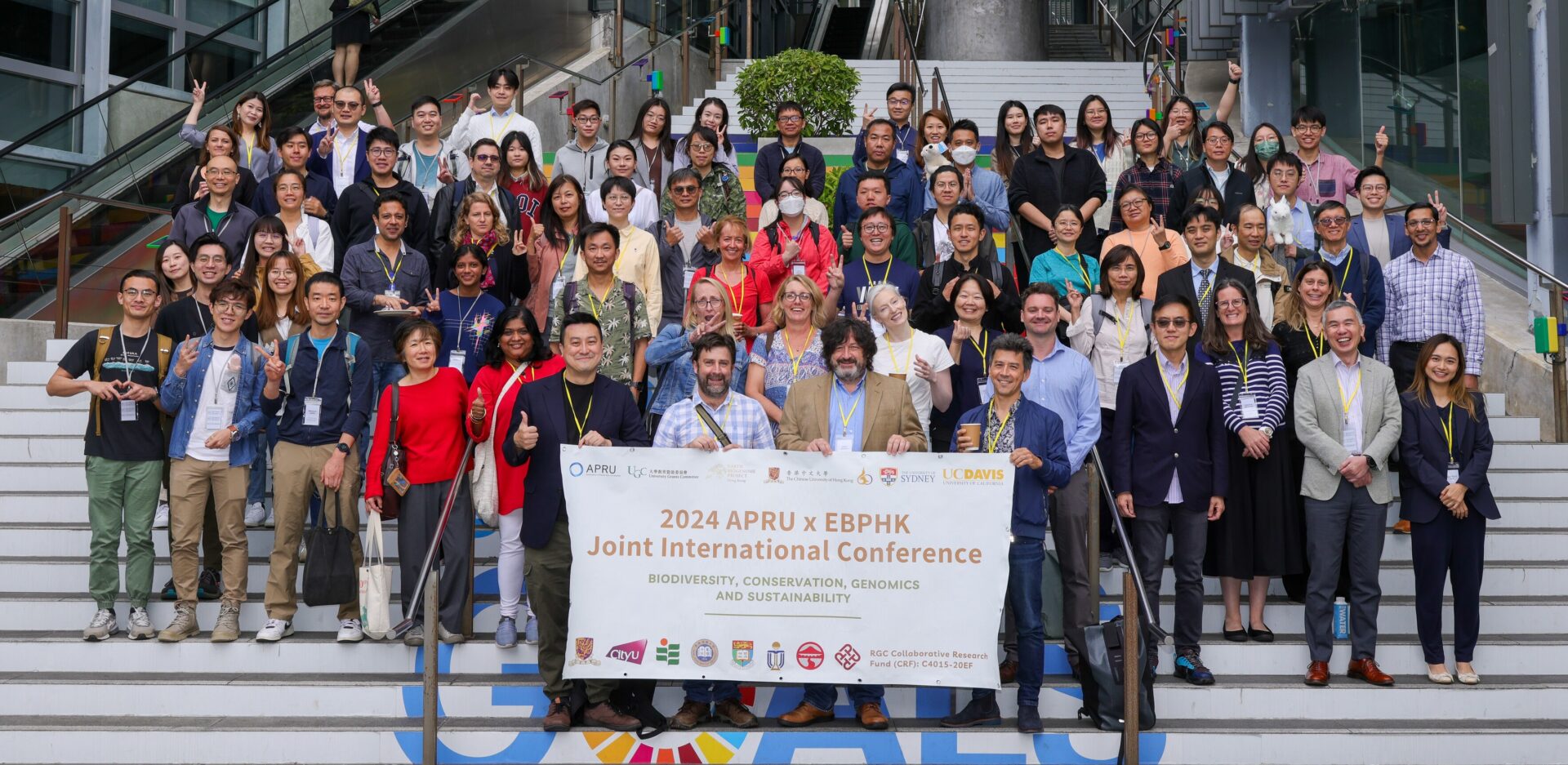Photo Credit: The Chinese University of Hong Kong
“Collaboration” was reiterated at the 2024 APRU x EBPHK Joint International Conference on Biodiversity, Conservation, Genomics and Sustainability from February 15 to 17 at The Chinese University of Hong Kong (CUHK) that attracted 127 participants from 17 universities and other organizations from eight economies.
The three-day conference, jointly organized by the APRU Biodiversity and Sustainability Program and Earth BioGenome Project: Hong Kong and hosted by CUHK, gathered academics from the Asia-Pacific region, as well as NGO practitioners, schoolteachers and members of the public from Hong Kong. Participants shared insights into biodiversity, conservation, genomics, and sustainability, against the backdrop of over a million species being under threat of extinction.
49 speakers delved deeply into a wide range of subtopics, including genetics and genome evolutionary biology research in response to climate change, biodiversity of bacteria, fungi, insects and plants, human-environment interactions for sustainable cities and sustainable lifestyles, as well as biodiversity education.
“Collaboration is key to the goal we wish to achieve, and collaboration cannot stop at the borders,” said Professor Alan Chan, Provost of CUHK.
Prof. Chan, who serves on the APRU Biodiversity and Sustainability Program Steering Committee, added that “we will generate new knowledge that improves our understanding of technological intervention that allows us to better manage the resources that are part of the human heritage.”
The APRU Biodiversity and Sustainability Program was established in 2021 drawing its strength from APRU member institutions representing a significant portion of the world’s research and knowledge capabilities on biodiversity. The program was jointly led by Prof. Jerome Hui from CUHK and Prof. Nathan Lo from The University of Sydney.
Earth BioGenome Project: Hong Kong (EBPHK) is another organizer of the conference. The Hong Kong initiative is derived from the Earth BioGenome Project, which is described as a moonshot project for biology and aims to sequence, catalogue, and analyse the genomes of all eukaryotes on Earth, including animals, fungi, and plants. As a local chapter of the global project, EBPHK was jointly established by eight publicly funded universities in Hong Kong, with an initial focus on organisms that are in high concern and great interest in the city.
The conference was complemented with a field trip to Tai O, a traditional fishing village on Lantau Island that is endowed with a wide variety of natural habitats and species of animals and plants with conservation value.
“At the moment we are losing species at a frequency over a thousand times faster than species were lost before human lived on this planet,” said Professor Kathy Belov, Pro-Vice-Chancellor of The University of Sydney.
Also an APRU Biodiversity Program SC member, Prof. Belov added that “today, you are here to think about how to drive solutions to address biodiversity loss, to better protect the ecosystems, and to combat the impacts of climate change.”
APRU’s Chief Executive Professor Thomas Schneider pointed out that the program provides a platform to support catalytic partnerships and collaborations.
“By connecting scientists, as well as experts and key stakeholders from other sectors of society, the hub creates new incentives for collective action to protect Asia Pacific ecosystems, address biodiversity loss and combat the impacts of climate change,” Prof. Schneider said.

